Fred Pearce reviews Chasing Water by Brian Richter
Of all the causes of the horrendous on-going civil war in Syria, the one that is least discussed is water. It may be a stretch to call the conflict a water war. But, as Brian Richter notes in this review of dysfunctional water governance, years of drought in Syria have "created a tinderbox for revolt" as wells run dry and food prices in local markets soar.
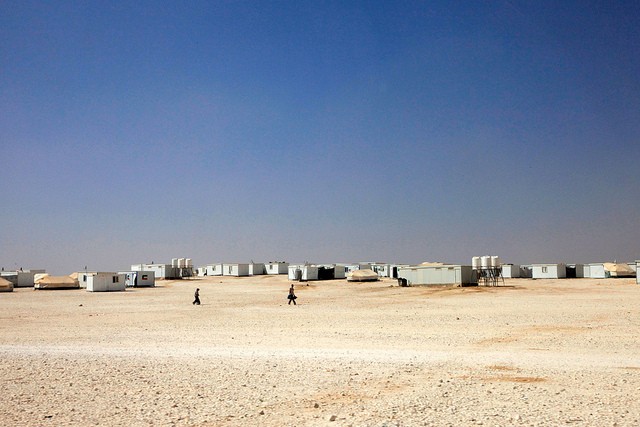 Years of drought in Syria have "created a tinderbox for revolt" as wells run dry and food prices in local markets soar. Photo: DFID on Flickr
Years of drought in Syria have "created a tinderbox for revolt" as wells run dry and food prices in local markets soar. Photo: DFID on FlickrThe trouble is that he says no more. What did the government get wrong? Are militias fighting for control of water, for instance? Syria is dispatched in a paragraph. A book that promises much -- and delivers a great deal of advice about how to democratise water management and take it out of the hands of corrupt and incompetent state bureaucracies -- is badly lacking in detailed examples from places where water politics can be a matter of life and death.
Richter's experience of water politics is mainly in the US, where he has worked for a quarter-century at The Nature Conservancy. He is good there. Notably on the Colorado River, where a decision taken almost a century ago to dole out rights to 90 percent of the river's flow – then at a historic high – has become a recipe for ecological disaster and hydrological disenfranchisement all the way to its delta in Mexico.
His global mapping of rivers under stress – where more than 50 percent of water is taken from rivers for more than a month in a typical year – makes a great deal more sense than conventional assessments by water managers. It is based on what ecosystems can stand, rather than what water supply systems can deliver.
He makes important points too about unsustainable water use, such as the rarity of water recycling and the global overpumping of underground water, which he estimates at a staggering 200 cubic kilometres a year. He establishes water misuse as one of the planet's greatest tragedies of the commons.
Tellingly, he describes meeting an Indian farmer who has bought a new and bigger pump. Doesn't the farmer know that he and his fellow farmers are already overpumping their aquifer? Of course, replies the farmer. That means I have to get the water before my neighbour does.
Richter rightly concludes that, like other such environmental tragedies, this is ultimately a failure of governance. But I am disappointed by his narrow view of governance. For him it is about putting systems in place for regulation and policing, and about melding the democratic and the technocratic.
That is all fine, but water is deeply political -- especially where the boundaries of river basins within which nature organises water do not coincide with political boundaries. And he is disturbingly weak on water politics.
He briefly discusses the desperate state of water supplies in the tiny enclave of Gaza, where he blames Palestinians for drilling illegal wells in the middle of the night to avoid prosecution by "water officials". He writes for all the world as if Gaza, under Hamas rule and surrounded by Israeli farmers and troops, were the same as Spain or California. There is no mention that the real Gaza water crisis arises across the border, where Israelis are (quite legally) abstracting from the same aquifer and commandeering surface water flows.
Richter's headline recipe for managing water better is less state control and more local water democracy. But in practice his democratising seems mostly to involve privatization, the creation of water markets and the engagement of private sector "stakeholders" in policymaking.
In his only developing-world example of democratising, he praises how the international flower farmers that have been draining Lake Naivasha in Kenya have now formed users associations and begun to cut their water abstractions by improving water efficiency. No doubt that is useful, but vesting power in big stakeholders in such an environment looks like entrenching water inequalities.
Large environment groups like Richter's The Nature Conservancy may be able to take their place in this new arrangement. But what of the local pastoralists and fishers and smallholder farmers? Will their voices be heard?
The corporate world is getting water politics in a big way. Anyone at recent Stockholm Water Week events will have witnessed the emergence of a dominant corporate water agenda. Water privatization in the new century is less about private companies managing urban water supply systems, and much more about corporate takeover of wider water policy. It is about Coca Cola's "replenish" programme for better water stewardship, and the UN's CEO Water Mandate.
They are addressing global water limits and trying to clean up their act. But they are also, in Richter's words "chasing water", and in return for engagement they want control.
That said, Richter provides some much needed optimism about water. Yes, in many places rivers are running dry and wells are emptying. Yes, more mouths to feed will tend to push up demand for water for agriculture – by far the biggest user. But equally, things can improve. In the US, despite a rising population, water abstractions peaked in about 1980. And in recent months, engineers on the Colorado have experimented with flushing a little seasonal water downstream into the river's dried up delta.
Given that, perhaps Richter is right to look to the US for solutions. But a more global perspective would have made an altogether more persuasive case.










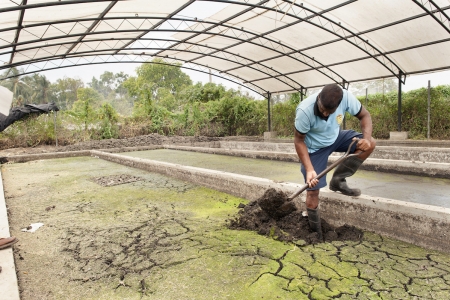
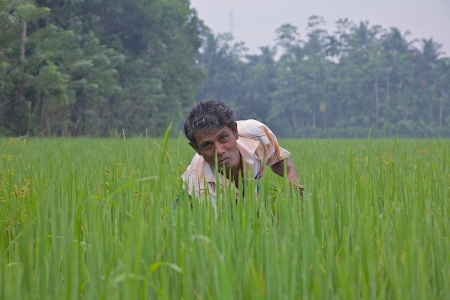
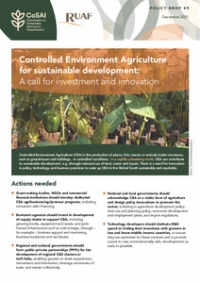
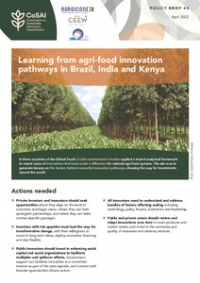
Comments
Fred, an interesting review of Richter's book. Recent work looking at extreme events in the US identified that drought can ofetn be a cause for conflict whereas flooding often draws communities together. There has been strong evidence of this in the UK over last winter too. I see the use of water footprinting and as linked to resource management as a way of having good policy dialogue. If water is seen as a local resource to be enjoyed by that local community but not compromising the rights of others, then that is a good place to start. Sadly there are many water stressed areas in the World where the drought psyche described by Richter is evident. What is needed is for people to recognise others needs and to behave accordingly. In that context there may be a case to say that many areas of the World are over-exploiting water and there is a need for balance to be restored to ensure long term sustainability.
Steve